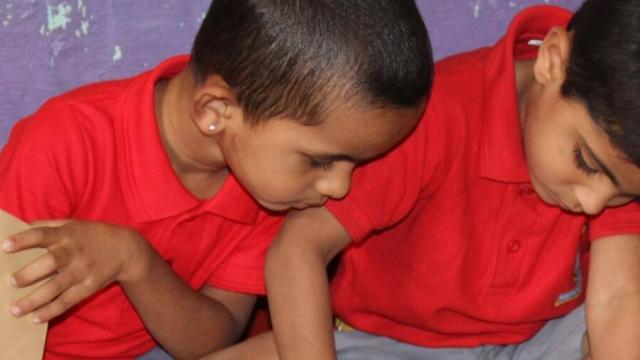Programme Director Kavita Rajagopalan reports back on key take-aways from GSF’s recent event on re-opening Early Childhood Education.
As more countries reopen schools for children in younger grades, there is much to be done to ensure we are ready to bring children aged between 3 and 6 back to classrooms. At Global Schools Forum, we recently welcomed representatives of GSF members Hippocampus, Dignitas and Instill Education, as well as the World Bank to reflect on challenges faced by schools and teachers as they plan for reopening. Our panel of practitioners had several critical insights to share. Here are my key takeaways.
We need to effectively plan for re-opening, aiming to positively impact children in the long-term. We don’t yet know what long-term effect 12 to 18 months of school closures will have on children. As schools reopen it is imperative to support children to catch up the basic skills they will need to thrive through schooling and through life, and not just the learning they have missed. We need to be aware of the different needs of children who have been through the trauma of a pandemic and have been away from the structure of schools for an entire year. We can’t - and shouldn’t - expect children and teachers to immediately pick up where they left off and return to usual standards.
It’s not just about learning loss - well-being of children should be of the foremost importance. Our panelists estimated that roughly 20-30% of children from low-income backgrounds had had access to some kind of learning through worksheets, radio, television or online methods. But, whilst this learning loss has been significant the impact on children has been far wider. Some children have not had access to proper nutrition, basic hygiene, and socialization that comes from interacting with other children, all of which impacts their well-being. Children may have also suffered in other ways at home, so safeguarding their well-being should be at the forefront of reopening.
It is important therefore to think about how we will assess and measure the impact of school closures on the early years. This should include assessments that identify the well-being and development gaps that have occurred over the past 12 to 18 months as well as learning loss. This information should be used to inform the support offered to children once they are back in school.
Well-being of teachers and school leaders matters. Teachers and school leaders have also been through a traumatic year and their well-being will directly impact on students. Many teachers who haven’t seen their students in a year don’t know what to expect from children when they come back to school. We need to roll out support for teachers that will equip them to take things day-by-day and slowly build back a positive classroom culture. School leaders need to be actively thinking about children’s learning and well-being, and not just focusing on preparing infrastructure and physical spaces. At all levels, we need to build the capacity, resilience and agility of teachers and school leaders to support children as schools reopen and to respond to possible future shocks and school closures.
Parents are integral to early childhood education. Ongoing engagement of parents has become an integral part of successful early childhood education programmes. Ahead of re-opening, schools will need to re-educate parents on the importance and benefits of an early years program
Finally, and perhaps most pressingly, schools need to be prepared for intermittent closures and be adaptive to changing situations and needs of children. So much depends on how we prepare for and reopen schools for children in the early years. It has been a year of compromised learning for children and compromised well-being for children, teachers and families, and so it is now more important than ever to ensure that children are safe, happy and cared for when they come back to schools.
Other resources:
- Guidance on reopening early childhood education settings by UNICEF, the World Bank and UNESCO. UNICEF has also developed a regional version for Latin America and the Caribbean.
- COVID-19 response for ECE in Yunnan Province, China compiled by the World Bank.
The event was organised in collaboration with Hippocampus. The panel included Annie Ndlovu (Instill Education), Deborah Kimathi (Dignitas), Melissa Kelly (World Bank) and Umesh Malhotra (Hippocampus). A video replay of the event can be watched here.
To find out more about membership of GSF, click here.

